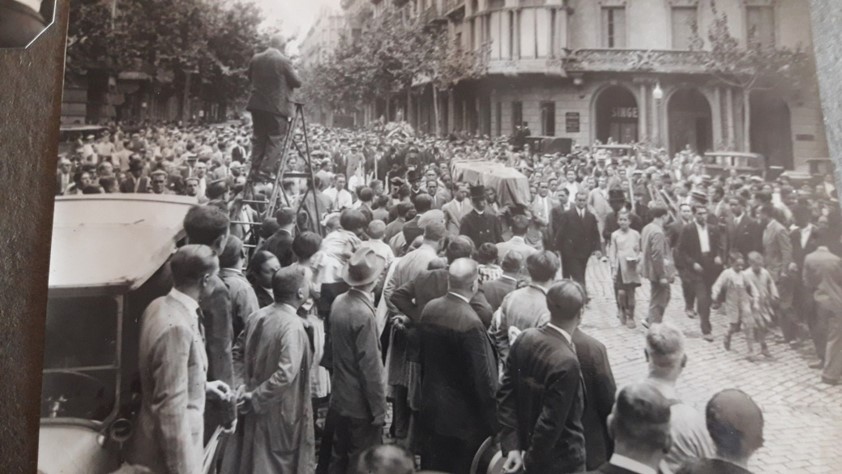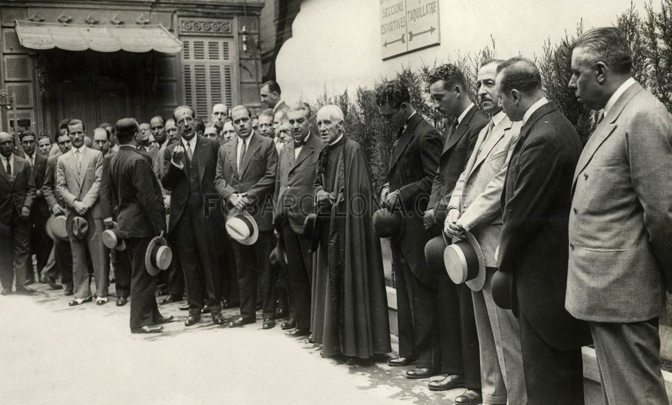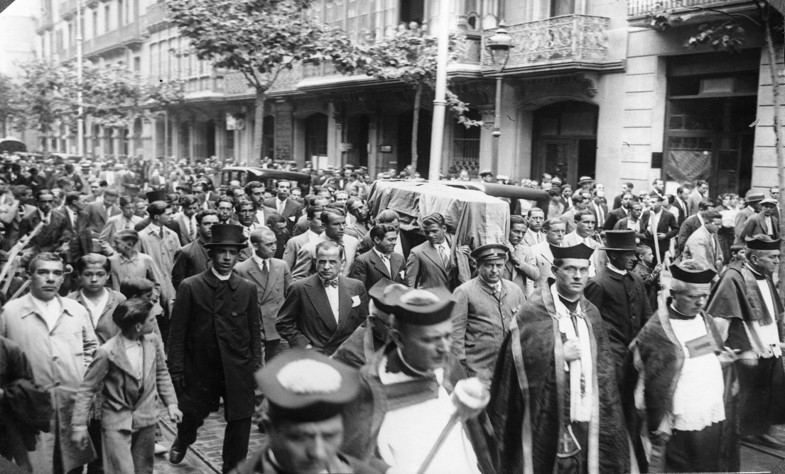Joan Gamper, founder and five-time president of FC Barcelona, committed suicide in his apartment in Barcelona, located in Girona Street, on July 30, 1930.
Ruined by Wall Street Crash of 1929 and suffering from depression since he was turned away from the Club, Gamper had suffered a deterioration of his health in the previous five years. He had been a scapegoat to the dictatorship of Primo de Rivera, who made him solely responsible for the events of June 14, 1925, after the controversy of the whistling of the Royal March. Directors, politicians or illustrious members of the Club had disengaged themselves from any responsibility, thus freeing themselves from any implication in those events.
They explain that a disillusioned Joan Gamper would confess to his close friends that: “Barcelona doesn’t love me”. However, and without any hint of irony, the burial of the father of Barcelona meant a citizen demonstration never seen before, led by Catholic priests even though he committed suicide and was of Protestant religion. It was a demonstration of mourning and appreciation for the most important person in the history of the Club, but perhaps also of collective remorse.
The end of an era
The day Barcelona learned of the Gamper tragic death, many felt an acute attack of bad conscience. Gamper death not only marked the end of a stage, but also the end of a more altruistic, involved and romantic way of running the Club. A project that began with his first presidency, and which took FC Barcelona from a situation of absolute loss of destiny to being a strong club, established in the world of football and which everyone now recognized for its roots.
It was also the end of a golden era of footballers who had given the Club all its successes during ten seasons, but for whom it was time to look for the necessary relief, a task always very difficult to manage from the boards of directors of all times. Seven years of dictatorship that had Barça in the spotlight were also coming to an end and a time of illusion for the Catalan society was starting. Of course, it would have to fall in love a second time, since, with the fall of the great Barça of the ‘Golden Age’ and the new political horizons for Catalonia, people again felt more comfortable talking about possible victories than defeats.


The loyalty of the penya Gol de Baix
In these circumstances, if there is a supporters’ club that we can qualify as loyal to the founder of FC Barcelona, it is the Penya Gol de Baix. This organization not only welcomed him when the dictatorship of Primo de Rivera tried to make his figure be forgotten (as we explained in previous chapters), but also had him very present in the celebration of the 31st birthday of the Club, as shown in this article of Mundo Deportivo of December 3, 1930:
THE MEMORY OF GAMPER BY THE PENYA GOL DE BAIX ON ITS XXXI ANNIVERSARY
As announced, a large contingent of fans of the penya Gol de Baix commemorated the XXXI anniversary of the founding of FC Barcelona, created at the initiative of our late friend, Mr. Joan Gamper, by going to the cemetery and placing on his grave a magnificent wreath of natural flowers from which hung a ribbon with the colors of the Club and the following inscription: “La penya Gol de Baix al seu company Joan Gamper”.
Once gathered in front of the place where Gamper mortal remains rest, Reverend Father Luis Sabater dedicated brief and heartfelt phrases to the deceased, praying a response for the soul of that unforgettable fighter, founder of the club that has achieved so much fame.
For all those supporters who would like to visit the remains of Joan Gamper, they still rest in the Montjuic cemetery, in a pantheon indicated on the cemetery map.






